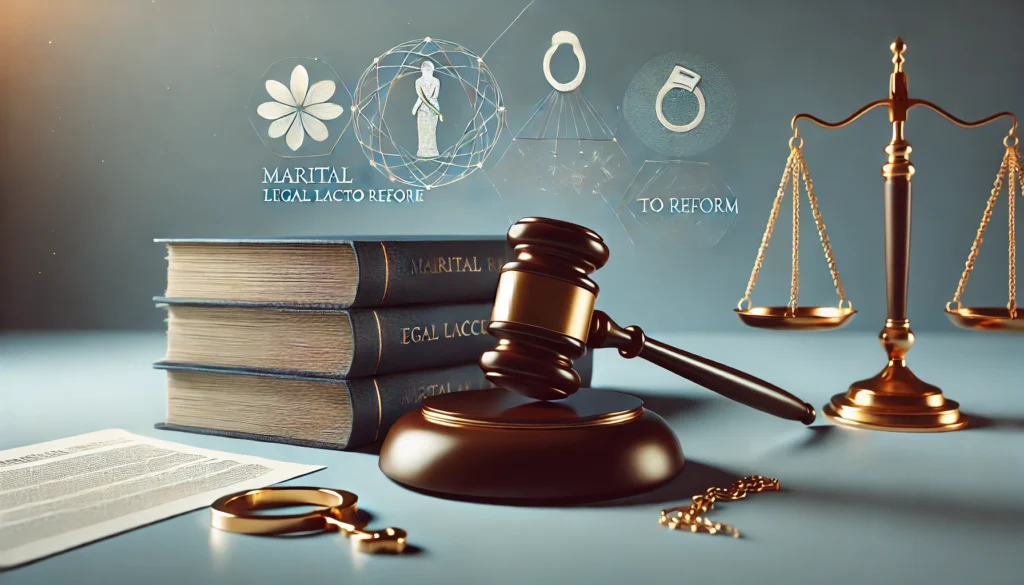Published On: 1 October, 2023
Navigating the Legal Path: A Comprehensive Guide on How to Get a Divorce in India
INTRODUCTION
Divorce, once a rarity, has become a part of modern life in India. As societal norms evolve, so do the legal procedures surrounding divorce. The process of obtaining a divorce in India can be intricate and emotionally taxing. This article aims to guide individuals through the essential steps, legal aspects, and considerations when seeking a divorce in India.
1. Understanding Grounds for Divorce
India recognizes various grounds for divorce under the Hindu Marriage Act, the Special Marriage Act, and the Indian Divorce Act. These grounds include cruelty, adultery, desertion, mental illness, and mutual consent. Each ground has its legal implications and requirements, and consulting a lawyer is vital to understand which applies to your situation.
2. Mutual Consent Divorce
Mutual consent divorce is a relatively swifter and amicable way to dissolve a marriage. Both partners must agree to the divorce and present a joint petition. This approach can save time, effort, and emotional strain. However, it’s important to understand the legal nuances and reach a settlement on issues like alimony, child custody, and property division.
3. Contested Divorce
Contested divorce occurs when one party seeks a divorce against the other’s wishes. The process involves filing a petition, gathering evidence to support the claims, and presenting the case in court. This route is often lengthy and requires strong legal representation. Courts evaluate factors such as cruelty, adultery, and desertion while granting a contested divorce.
4. Initiating the Divorce Process
The process typically begins with drafting a divorce petition outlining the grounds for divorce and the relief sought. Legal assistance is crucial here, as errors can delay proceedings. Once the petition is filed in the appropriate family court, it’s served to the other spouse, who has the right to respond.
5. The Waiting Period
Indian law mandates a mandatory waiting period before granting a divorce. This period varies depending on the applicable law and grounds for divorce. For example, the Hindu Marriage Act imposes a waiting period of six months for mutual consent divorce to provide time for reconciliation.
6. Settlement and Alimony
During divorce proceedings, settling financial matters is paramount. Courts consider factors like the earning capacity of both parties, the standard of living, and the duration of the marriage. Alimony, child support, and property division agreements should be carefully negotiated and included in the divorce settlement.
7. Child Custody
Child custody is a sensitive aspect of divorce. Courts prioritize the child’s best interests while determining custody arrangements. Factors like the child’s age, preference, and the parents’ ability to provide a stable environment are evaluated.
8. The Role of Mediation
Mediation is encouraged by courts to facilitate amicable settlements and reduce the adversarial nature of divorce. Trained mediators help couples discuss their issues, reach compromises, and draft agreements that can be presented in court.
9. Court Proceedings
If disputes persist, the case moves to the courtroom. Both parties present their arguments and evidence. Legal representation is crucial at this stage to ensure the case is effectively presented and rights are protected.
10. Post-Divorce Considerations
After obtaining a divorce decree, individuals should update legal documents, such as wills, insurance policies, and property ownership records. Emotional healing and counselling are equally important to cope with the aftermath of divorce.
11. Legal Assistance and Documentation
Engaging an experienced family lawyer is perhaps the most crucial step in a divorce. A skilled lawyer will guide you through the legal intricacies, ensuring that your rights are upheld and your interests protected. They can provide expert advice on the appropriate grounds for divorce, the type of divorce best suited for your situation, and the documentation required to support your case.
Gathering the necessary documents is a significant aspect of divorce proceedings. These documents may include marriage certificates, financial statements, property ownership records, evidence of cruelty or adultery, and any prenuptial agreements. A lawyer will help you compile and organize these documents, ensuring their accuracy and relevance to your case.
12. Financial Planning and Alimony
Division of assets and liabilities is a common aspect of divorce. It’s important to clearly understand your financial situation, including joint assets, debts, and income sources. This information will be crucial when negotiating alimony or spousal support, especially if one spouse is financially dependent on the other.
Alimony is awarded based on various factors, including the length of the marriage, the earning capacity of both parties and their respective financial needs. Negotiating a fair alimony arrangement can be complex and requires a solid understanding of the legal guidelines.
13. Protecting Your Children’s Interests
If children are involved, their well-being becomes a primary concern. Decisions regarding child custody, visitation rights, and child support must be made with the children’s best interests in mind. Courts prioritize stability and a healthy environment for the children. Collaborating with your spouse to create a comprehensive parenting plan can demonstrate your commitment to their welfare.
14. Emotional and Psychological Support
Divorce is a procedure that involves both legal and emotional aspects. The emotional toll it takes on individuals can be significant, often affecting their mental health and overall well-being. Seeking therapy, counseling, or support groups can provide a safe space to express feelings and navigate the emotional challenges that arise during this period.
15. Post-Divorce Transition
The transition to life post-divorce can be a complex journey. It involves adjusting to new routines, managing finances independently, and potentially co-parenting. Establishing a support network of friends, family, and professionals can help ease this transition and provide guidance as you rebuild your life.
16. Social Stigma and Acceptance
In India, divorce still carries a certain social stigma, particularly in more conservative communities. However, societal perceptions are gradually changing, and the emphasis is shifting towards individual well-being and personal growth. Accepting that divorce is a viable option for a better life is an important step in reclaiming one’s agency and moving forward.
Conclusion
Obtaining a divorce in India involves legal complexities and emotional challenges. From understanding the grounds to navigating court procedures, it’s a journey that requires careful consideration, legal expertise, and emotional support. Whether seeking mutual consent or contesting a divorce, individuals must prioritize their rights, the welfare of their children, and a fair resolution of financial matters. With the right legal guidance and a focus on moving forward, the path to divorce can be navigated with greater ease and understanding.
Getting a divorce in India is a multifaceted process that involves legal, financial, emotional, and psychological considerations. While the process can be daunting, proper preparation, legal guidance, and emotional support can make it more manageable. As societal attitudes evolve, it’s becoming increasingly important to prioritize personal well-being, self-respect, and the pursuit of a life that aligns with individual aspirations. Through careful planning, effective communication, and informed decision-making, the process of getting a divorce can be navigated with greater clarity and confidence.
Divorce by mutual consent provides a viable and less contentious option for couples who have mutually agreed to end their marriage. The legal basis for mutual divorce in India, together with recent amendments and case laws, aid in ensuring a more streamlined and effective procedure. By having a better understanding of how to deal with the challenges of divorce. Consult with an experienced divorce attorney if you’re thinking about a mutual divorce so they can help you navigate the procedure and defend your rights.




